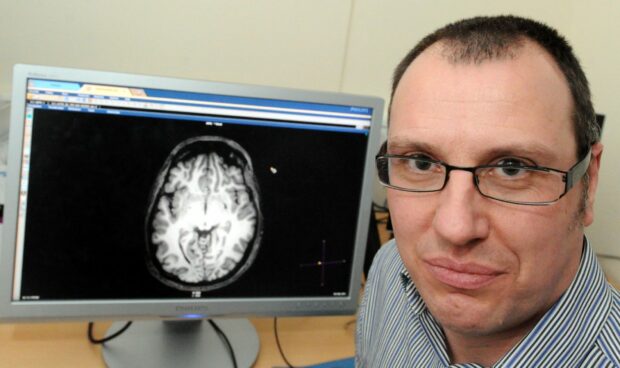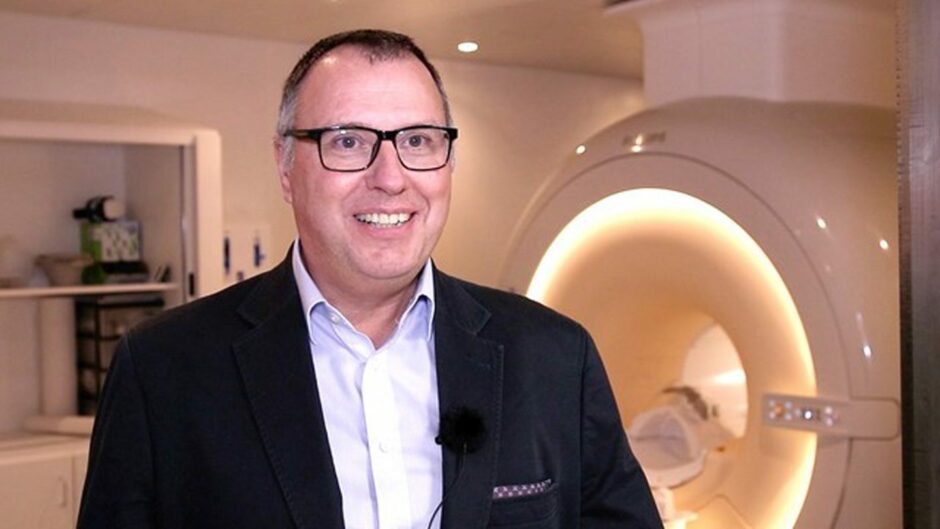A safer and cheaper method of diagnosing Alzheimer’s disease is being developed by Aberdeen University researchers.
While there isn’t a cure for dementia, researchers at the university hope the new trial can give people an earlier diagnosis, allowing them access to support.
It’s estimated by 2040 there will be more than 1.5 million dementia patients in the UK.
A strong indicator of Alzheimer’s disease is the low ability of brain cells to use glucose.
The current approach to diagnosing dementia exposes patients to ionising radiation, therefore has the potential to be harmful.
Now, Aberdeen University are trying out Chemical Exchange Saturation Transfer (CEST) where brain glucose can be found through an MRI scan.
‘Early diagnosis is important’
Dr Gordon Waiter, director of the Aberdeen Biomedical Imaging Centre, said: “Alzheimer’s disease is the most common type of dementia.
“Most available treatments aim at controlling symptoms at early stage rather than providing a cure. Therefore, early diagnosis of Alzheimer’s disease is important.
“With a global reputation for excellence in MRI stretching back over 40 years, Aberdeen University is excellently placed to lead this trial.”
MRI is considered safe and is less costly than the current diagnosis method.
If Aberdeen University’s trial is successful, it has the potential to replace the current method which is known as positron emission tomography (PET).
A PET scan is an imaging test that can help reveal the metabolic or biochemical function of your tissues and organs.
Last month, Alzheimer’s Research UK praised a new drug that has been found to successfully slow cognitive decline.


Conversation